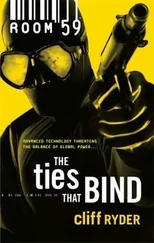For example, when she was about two, we tried pretty seriously to impress upon her how she had to stay in the yard. We told her that she was not to cross the gravel road in front of the house. But that same afternoon when we missed her and looked up, there she was in the native pasture across the road, high-stepping down the hill. In one hand she was carrying her soggy diaper like it was something of herself that she was not about to leave behind; she had an elm stick in her other hand. She was following her little pot belly through the tall grass and sagebrush. There were cows and calves in the pasture, too, the cows all bunched up on stiff legs, watching her pass. But the dog was with her. She and Jack had been hunting prairie dogs on the hill. It was the reason for her stick.
Or another time: when she was older, about six, I was trying to make her see the correct side of things, giving her the benefit of considerable wisdom and experience— until she interrupted me.
“Oh, Dad,” she said. “Dad, you don’t know anything and you know it.”
Then, having straightened me out, she flounced off to play dolls or to discover kittens in the hayloft. And how was I supposed to argue with what she said? I was wrong on both accounts.
In that way she favors her mother. While she may have a band of round orange freckles pocked across her nose like I did when I was a kid, she still has her mother’s and her Grandpa Pickett’s eyes. Those green eyes that look past you or through you like you weren’t there, as if you didn’t amount to anything more than smoke — a minor obstruction, say, a kind of highway mirage, between her and the thing she intends to see. She will see the thing, take it in, accomplish it, no matter. The girl has backbone, and I’m damn grateful she does.
She was born on August 3, 1969, with no trouble. After burying what should have been her older brother in a box above the barn, Mavis and I saw to that. We took precautions, did nothing rash, curbed any thought of Ferris-wheel rides or drives home afterwards that would have been too late. We believed we were being given another chance and were not about to lose it. Of course it made for a long, slow nine months of housebound waiting, but it was worth it, because if Rena Pickett was compensation to Edith these last seven years, she has been more than that to us. She’s our daily satisfaction.
She’s also meant a good deal to her grandmother, that eighty-four-year-old woman who still lives in brittle comfort with a retired life-insurance salesman in that brick house at the northeast edge of town. Leona Turner Newcomb Roscoe Cox likes having a granddaughter to buy pink dresses and white kneesocks for; she seems to believe that such things close the gap, that they put all the grasping and all the arguments behind her, that the past is past. Well, the truth is, we’ve all grown older. She said the other day that she and Wilbur were thinking of taking a boat tour of the Bahamas. I told her I thought that would be a good idea. I said, “As far as I know the boat won’t stop at Havana.”
But this is not Leona Cox’s story. I’m talking about Edith Goodnough.
IT WAS ABOUT A YEAR after Lyman began to spread himself in the parlor that Edith decided to vacate the upstairs. Edith was finally getting tired. It began to show even on her. Her brown hair was turning gray fast now, losing its curl. There were purse lines at her mouth. She seemed to have to catch her breath after any kind of movement, whether it was to sweep the floor, feed the chickens, or just to stand up from the kitchen table to crack eggs. Also, every day it was growing more difficult for her to climb the stairs ten times, to be everywhere at once, to do all she’d been doing for seventy-some years and still believed she had to go on doing. She wouldn’t let herself do less; it wasn’t her way. Well, it was wearing her thin as water.
And meanwhile, Lyman was getting sorrier all the time. His mind was closing down hard. There seemed to be about one thought only in that old head of his under that green visor — parlor travel. He hung on to that daily business like it was a drive chain in a Model T, like it was a cotter pin on a bull wheel, and he demanded Edith’s help to make the thing go. Often there were times when he couldn’t make his travel connections come out right and she had to leave the dishes to soak or let the peas burn while she helped him. He was as demanding as a child— she had to come now; not a minute later — and the worst hell of it was, he was still strong physically. Sometimes in those last years I caught myself thinking, What if he died? Or, what if a stroke put him away for good in the hospital? Wouldn’t that be better after all, some relief for her? But none of that happened. Lyman stayed as tough and stringy as a roping steer, even if he did end up using two canes. He was still capable of leverage. If Edith somehow managed to persuade him to take a nap in the afternoon on the couch, he would spend half the night demanding her help with his travel charts. All the time he was sending himself on imaginary trips to Memphis or Mobile. He was working up little jaunts to Los Angeles for himself. It went on for hours.
When it went on for more than a year, Edith asked me to help her move the furniture. She wanted to know if I didn’t think it would be better to move the bedroom furniture downstairs, to set it up in the living room next to the parlor where she could be closer to him when he called in the night. It sounded like a good idea to me. They could shut off the upstairs altogether; there wouldn’t be any reason to climb those steps again. So I went over in the afternoon to help her accomplish that. That was when I understood for the first time that there was only one bed in use up there. She wasn’t trying to hide it. It was a double bed in the west bedroom, with an old-fashioned quilt spread.
“This what you want moved?” I said.
“Just the dressers out of this room, Sandy,” she said.
“What beds do you want?”
“They’re out in the garage. In storage.”
“Oh?”
“We stored them out there when Lyman came back— to make space for his things.”
She was looking at me steadily from where she stood in front of the window, the country open and flat and dry behind her. She looked tired, a thin aging woman with her mouth pursed. She had begun to fashion her gray hair into a kind of knot. We stood there facing one another in the room where she had been born, where Lyman was born two years later, both of them with my grandmother’s help, and where Ada had died holding my grandmother’s hand, the room where the old man finally died in his time with his mouth locked open like box iron. It was a lot of history to be worrying about a double bed.
“Well,” I said, “why don’t I start with these dressers?”
I started pulling out the drawers and carrying them downstairs. Then I banged the dressers themselves down the steps and went outside to bring the beds in from the garage. The beds Edith wanted were old cast-iron single beds, stored overhead on the rafters. I dusted them off and set them up like she wanted, one on either side of the living room against the walls. She was making a day room out of it. When we were finished it looked all right too. Comfortable and clean, with matching spreads on the two beds, and the dressers set up in the corners with a clothes closet moved into the pantry. Lyman stayed busy in the parlor the whole time. He was studying a road map.
“Where you headed today?” I asked him. “New York City?”
“Salt Lake,” he said.
“Hell of a place,” I said.
Then I went home to feed corn to castrated bulls and to fork hay to fat cattle. And you can make of the Goodnoughs’ bedroom arrangement whatever you want to. Stir it according to your own lights. Myself, I don’t make anything of it. If they wanted to sleep in the same bed, warm their feet under the same old-fashioned patchwork quilt like they had when they were kids before this century ever began — well, that was their business, because when you know people all your life you try to understand how it is for them. What you can’t understand you just accept. That’s how I felt about Edith. At the time I could still remember like it was yesterday how she fed me chewing gum while we cleaned chicken squirt from brown eggs at the kitchen sink and how one summer she brought me ice tea and lemonade when I was driving tractor in a hayfield and an old man was waving stumps past my head and screaming nonsense in my ears. I intended to help her however I could. It was not my business to ask fool questions that didn’t concern me. That’s where Rena Pickett came in. To help Edith, I mean. Only help isn’t the right word.
Читать дальше












